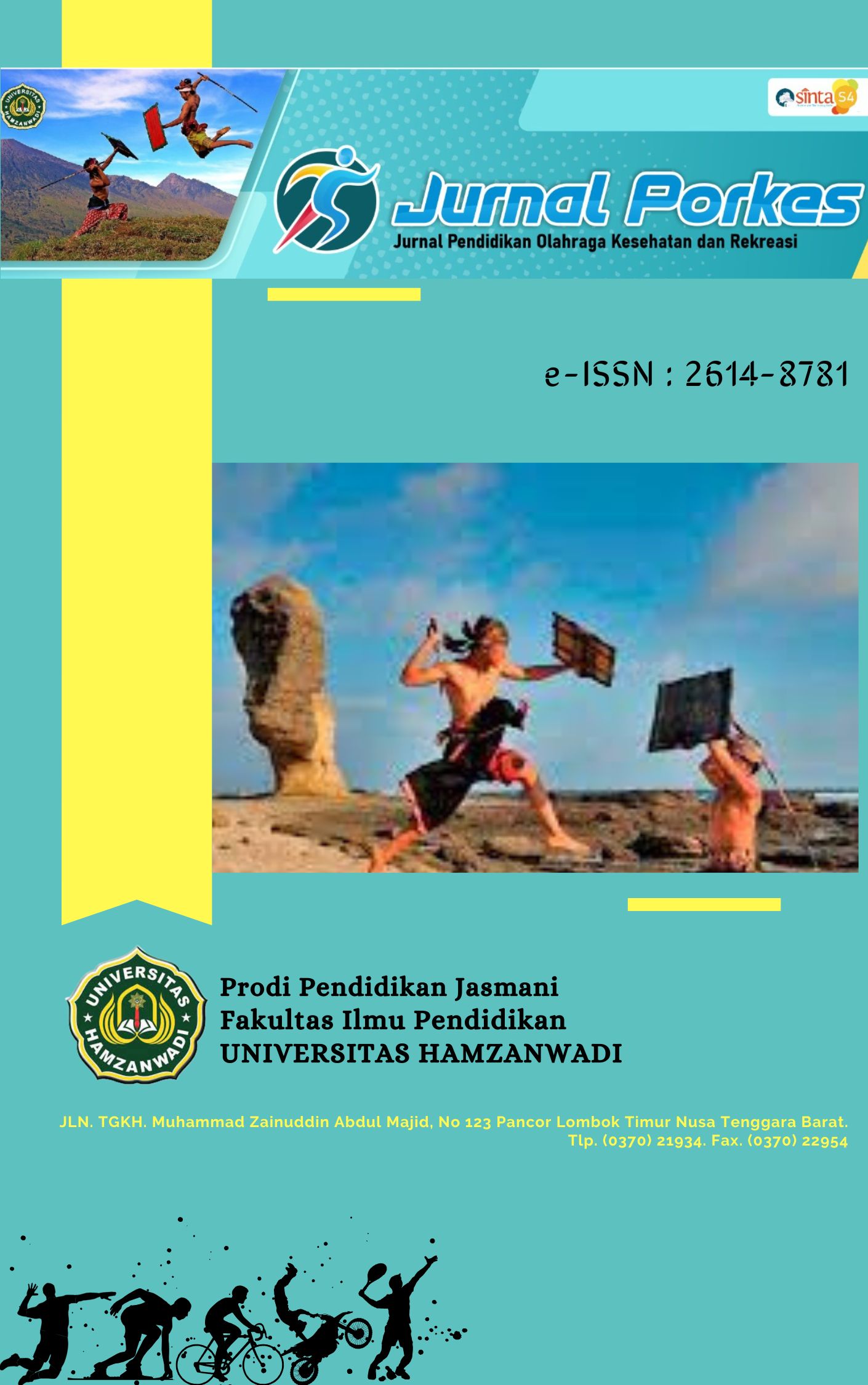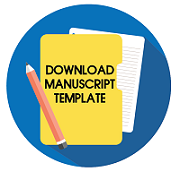Pengaruh Self Disclosure dan Self Efficacy Terhadap Tingkat Setres pada Mahasiswa
DOI:
https://doi.org/10.29408/porkes.v5i2.6529Keywords:
Self disclosure, self efficacy, stress level, student.Abstract
Thesis task is a final task that is difficult and takes a long time so that students feel burdened with their assignments which will have an impact on stress. The cause of stress in students can be due to internal or external problems. 67.4% of nursing students who are working on their thesis experience mild stress. Students who have low self-disclosure and self-efficacy will experience high stress, so that it can affect students in doing thesis. This study aims to determine the effect of self-disclosure and self-efficacy on stress levels in students who are working on a thesis. The design of this study was quantitative with a cross sectional approach. This research was conducted at Yatsi Madani University in June 2022. The population in this study were regular final year students at Yatsi Madani University. The sampling technique used total sampling with a total of 227 students as respondents. The instruments in this study used the Jung's Type Indicator (JTI) questionnaire, self disclosure scale, self efficacy scale and stress scale for. Bivariate analysis in this study used the Chi-Square test. Of the 227 students, the majority aged 21-23, 97.8%, female 87.2%, having an extrovert personality as much as 96.9%, self-disclosure and self-efficacy in dominant students in the moderate category as many as 86.8 % and 73.6%, and the majority fall into low stress levels as much as 67.4%. The results of the Chi-Square test obtained a p-value of 0.001 <0.05, which means that there is an influence between self-disclosure and self-efficacy on stress levels in students. This study can be used as a reference to get an overview of the three variables so that they can provide nursing interventions to students.
References
Anindya, G. S., & Sartika, D. (2018). Hubungan antara self-efficacy dengan Stress pada Mahasiswa yang Sedang Menyusun Skripsi di Universitas Islam Bandung. Prosiding Psikologi, 4(1), 345–351.
Ali, M. (2011). Kontribusi status gizi dan motivasi belajar terhadapkesehatan jasmani mahasiswa pendidikan olahragadan kesehatan Universitas Jambi. Jurnal Pendidikan Jasmani Indonesia, 8(1). https://doi.org/10.21831/jpji.v8i1.3485
B, H., & Hamzah, R. (2020). Faktor-Faktor Yang Berhubungan Dengan Tingkat Stres Akademik Pada Mahasiswa Stikes Graha Medika. Indonesian Journal for Health Sciences, 4(2), 59–67. https://doi.org/10.24269/ijhs.v4i2.2641
Faridah, I., Afiyanti, Y., & Fatonah, S. (2022). Pengaruh Application Mobile Mindfulness (MM) Terhadap Tingkat Stress Pada Mahasiswa Di Tangerang Raya. Nusantara Hasana., 1(8), 91–95. http://www.nusantarahasanajournal.com/index.php/nhj/article/view/220
Fauziyah, N. (2021). Pelibatan Pasien dalam Manajemen Asuhan Keperawatan (patient engagement in nursing care management). Penerbit NEM.
Gamayanti, W., Mahardianisa, M., & Syafei, I. (2018). Self Disclosure dan Tingkat Stres pada Mahasiswa yang sedang Mengerjakan Skripsi. Psympathic : Jurnal Ilmiah Psikologi, 5(1). https://doi.org/10.15575/psy.v5i1.2282
Greene, K., Derlega, V. J., & Mathews, A. (2018). Self-Disclosure in Personal Relationships. The Cambridge Handbook of Personal Relationships.
Handayani, V. F., Arisanti, I., & Atmasari, A. (2019). Pengaruh Pengungkapan Diri (Self Disclosure) Terhadap Stres Pada Mahasiswa Yang Mengerjakan Skripsi Di Fakultas Ekonomi Dan Bisnis Universitas Teknologi Sumbawa. Jurnal Psimawa, 2(1). http://jurnal.uts.ac.id/index.php/PSIMAWA
Hidayat, E. I., Ramli, M., & Setiowati, A. J. (2021). Pengaruh self eficacy , self esteem , dukungan sosial terhadap stres akademik mahasiswa tingkat akhir. Jurnal Pendidikan: Teori, Penelitian, Dan Pengembangan, 6, 635–642.
Isnaini, L. M. Y. (2019). Aplikasi Latihan Mental Dalam Pembelajaran Gerak Untuk Meningkatkan Keterampilan Pada Pembelajaran Pendidikan Jasmani Olahraga dan Kesehatan. Jurnal Porkes, 2(1), 17-25. https://doi.org/10.29408/porkes.v2i1.1451
Klassen, R. M., & Klassen, J. R. L. (2018). Self-efficacy beliefs of medical students: a critical review. Perspectives on Medical Education, 7(2). https://doi.org/10.1007/s40037-018-0411-3
Kriswanti, I. D., Budiono, A. N., & Mutakin, F. (2020). Hubungan Self Efficacy dengan Tingkat Stress .dalam Menyusun Tugas AKhir (SKRIPSI). Jurnal Consulenza : Jurnal Bimbingan Konseling Dan Psikologi, 3(2), 58–64. https://doi.org/10.36835/jcbkp.v3i2.824
Marbun, A. P. S., Arneliwati, & Amir, Y. (2018). Faktor- Faktor yang Mempengaruhi Stres Mahasiswa Program Transfer Keperawatan yang Sedang Menyusun Skripsi. Researchgate, 1(1), 446–459. https://www.researchgate.net/publication/323107663_Gambaran_Tingkat_Stres_pada_Mahasiswa_Fakultas_Kedokteran_Universitas_Riau_Tahun_Pertama
Muhammad, W. Z., Erliana, Y. D., & Hakim, L. (2021). Hubungan Jenis Kepribadian (Ekstrovert & Introvert) Dengan Pengungkapa Diri (Self Disclosure) Pada Pengguna Media Sosial Instagram : Studi Kasus Pada Mahasiswa Fakultas Psikologi Universitas Teknologi Sumbawa. Jurnal PSIMAWA, 4(1), 13–18. https://doi.org/10.1234/jp.v4i1.1266
Parjianto, J., Yanto, A. D., & Erlita, D. (2021). Pengaruh Pelatihan Berpikir Positif Terhadap Peningkatan Efikasi Diri Akademik pada Mahasiswa Baru Fakultas Psikologi Universitas Airlangga. Jurnal Sains Psikologi, 10(2), 118. https://doi.org/10.17977/um023v10i22021p118-135
Pusat Data dan Informasi Kementerian Kesehatan RI. (2019). Situasi Kesehatan Jiwa Di Indonesia. In InfoDATIN (p. 12). InfoDatin Pusat Data dan Informasi Kementerian Kesehatan RI.
Pambudi, Y. T., Widorotama, A., Fahri, A. S., & Farkhan, M. M. (2022). Korelasi Efikasi Diri dan Motivasi Belajar dengan Hasil Belajar Mahasiswa Pendidikan Jasmani. Jurnal Porkes, 5(1), 158-167. https://doi.org/10.29408/porkes.v5i1.5350
Rosyad, Y. S. (2019). Tingkat Stres Mahasiswa Sekolah Tinggi Ilmu Kesehatan Yogyakarta Dalam Mengerjakan Skripsi Tahun Akademik 2018/2019. Cahaya Pendidikan, 5(1), 56–64. https://doi.org/10.33373/chypend.v5i1.1872
Saputro, A. A. (2021). Pengaruh Self-Efficacy Terhadap Setres Mahasiswa Dalam Pembelajaran Jarak Jauh Selama Pandemi. Journal Pendidikan Jasmani Kesehatan & Rekreasi (PORKES), 4(2). https://doi.org/10.29408/porkes.v4i2.4369
Supriyono, S., Romaisyah, L., & Mawardi, A. I. (2019). Analisis Pengaruh Stres Mahasiswa Yang Mengerjakan Skripsi. Jurnal MEBIS (Manajemen Dan Bisnis), 4(2). https://doi.org/10.33005/mebis.v4i2.57
Suyanti, S., & Albadri, A. (2021). Self Efficacy dan Kecemasan Mengerjakan Skripsi pada Mahasiswa. PSYCOMEDIA : Jurnal Psikologi, 1(1), 10–20. https://doi.org/10.35316/psycomedia.2021.v1i1.10-20
Wahdania, W., Murdiana, S., & Indahari, N. A. (2021). Pengaruh Metode Expressive Writing terhadap Pengungkapan Diri Mahasiswa Baru. Journal of Art, Humanity and Social Studies, 1(2), 95–102. https://ojs.unm.ac.id/PJAHSS/article/view/31711
Zhang, R. (2017). The stress-buffering effect of self-disclosure on Facebook: An examination of stressful life events, social support, and mental health among college students. 75. https://doi.org/10.1016/j.chb.2017.05.043
Downloads
Additional Files
Published
How to Cite
Issue
Section
License
![]()
Jurnal Porkes is licensed under a Creative Commons Attribution-Share Alike 4.0 International License







